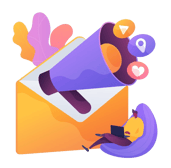The last two years have seen a sea change in how we work—and in how we want to work. With remote and hybrid work becoming commonplace, many employees have been reassessing their work life and considering new options and opportunities. Indeed, up to a fifth of workers in the UK have resigned their positions in search of greater flexibility and job satisfaction.[1]
But what does this change mean for how businesses retain and engage staff? This “Great Resignation” certainly poses challenges for retention[2]—but it also offers opportunities. Companies that offer workers the kind of positive employee experience they’re seeking, they not only can retain the talent they have, but attract fresh talent too.
To create this level of world-class employee journey, companies need to address the three pillars of the employee experience - learning and development, employee engagement, and performance management. However, all three depend on an organisation’s ability to manage and share knowledge. Companies that hope to offer a truly outstanding employee experience will need to ensure that every employee, including their hybrid and remote workers, has access to the knowledge, skills and resources they need to perform their best and enjoy their work.
Here are four ways that a flexible, centralised knowledge management system can really enhance the whole employee journey:
1. Knowledge management makes work easier
Working in data-heavy environments can be challenging at the best of times, especially if locating key information involves repetitive, needle-in-haystack searching.
This is true for every employee - after all, the average knowledge worker spends up to 9.5 hours a week looking for the information they need to do their job. However, it’s especially daunting for new hires. We’ve all faced that first-day overwhelm of being confronted with processes, procedures and workflows that are completely alien. With an intuitive and accessible knowledge management system, however, employees can easily locate the resources they need and even new hires can get up to speed quickly.
A next-gen learning and knowledge management platform like Learn Amp enables employees to make better use of their time and resources, and be more proficient, productive and autonomous, right from the outset.
.png?width=201&name=Group%201295%20(3).png) |
2. Employees can see their impact and value
We all want to feel valued in our work, and that we have a tangible and unique impact. Often, however, employees can feel like they are seen as interchangeable cogs in the machine. So how can companies engage employees as individuals and foster their enthusiasm for what they each can bring to the table?
To begin with, look to your employees for input. Run pulse surveys and employee surveys to understand how your workforce feels about their current experience and their ideas for what information and resources they would find useful. This way, employees can trust that their needs are important and valued. This also encourages their buy-in and a sense of involvement in the evolution of the company’s knowledge and processes. What’s more, it involves them in building their own employee experience.
Next, involve your employees in the process of creating, curating and sharing knowledge assets. Employee-created content not only enhances the company knowledge, it also encourages organisational learning and inspires employees to make use of and contribute their knowledge to the organisational pool. Empowering employees to be creators of knowledge assets and recognising them as subject matter experts (SMEs) encourages social learning and generates a sense of ownership and pride in what they know and what they have to offer.
3. Employees can collaborate with ease
With more and more workers off-site, there’s a danger that departmental silos can get reinforced. However, the right digital tools and systems can help break down those barriers, making communication easier and more effective.
For example, with Learn Amp, you can transform your internal company directory into a networking platform, so that employees can not only highlight their own skills, knowledge and areas of expertise, but also easily find and connect with colleagues whose knowledge or mentorship they need. The Recommendations tool allows employees to promote and receive relevant organisational knowledge, while discussion panels enable them to engage more actively with each other.

|
Get actionable insights around Employee Experience and People Development |
4. Employees can innovate
The easier employees can access and share knowledge, the more likely they are to collaborate and innovate. Good knowledge management and communication technology opens employees up to new ideas and new ways of thinking, creating and working.[3]
This is where Learn Amp’s centralised learning hub can really transform the employee experience, fostering opportunities for employees and teams to mutually develop their expertise.
Cultivating a knowledge sharing culture, where employees can learn, engage and perform with ease, will boost retention rates and ultimately promote a better employee experience. With an engaging knowledge management platform in place, you can be sure that, if and when employees do move on, both they and your company are all the better for the experience.
Resources



